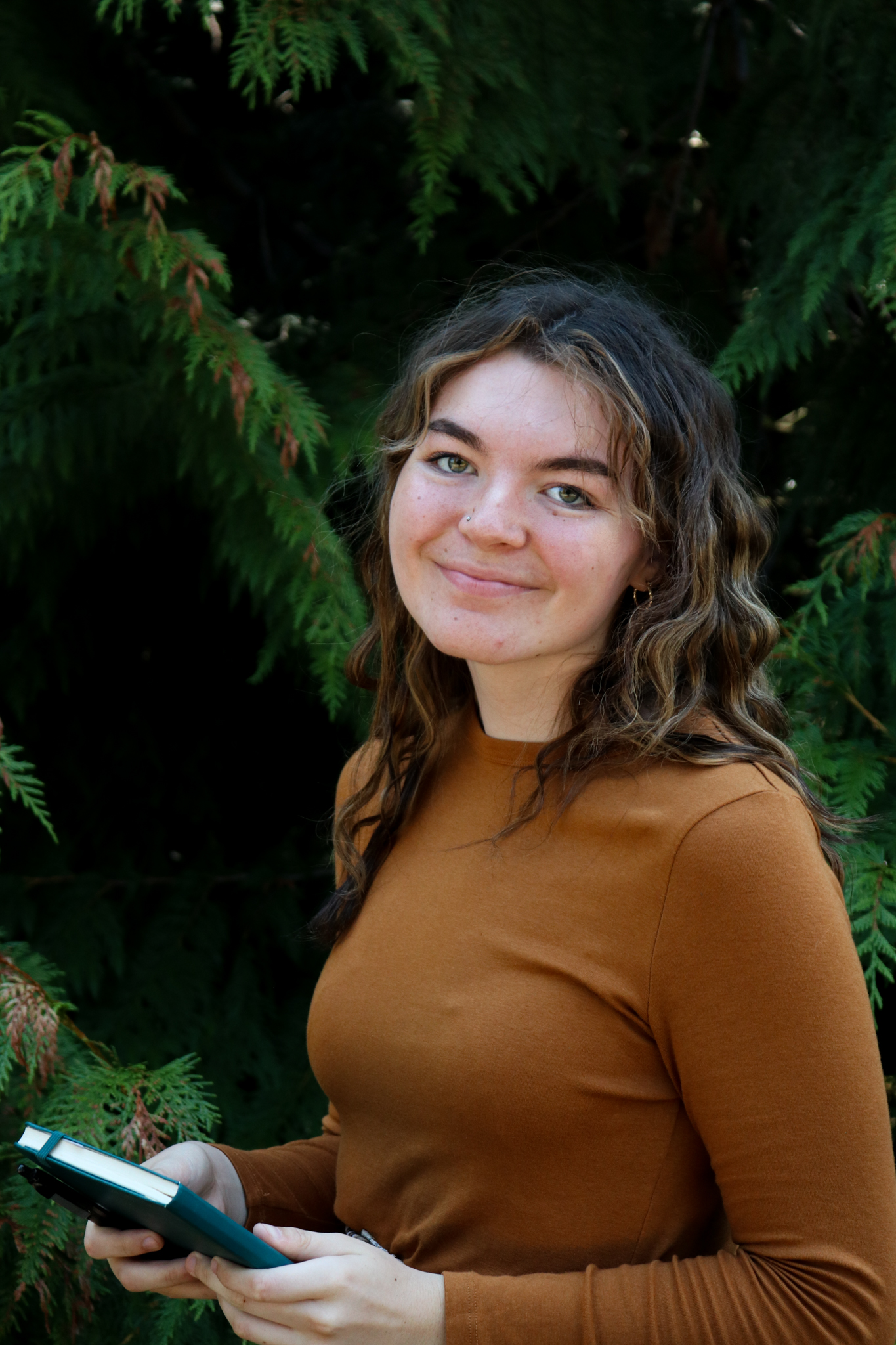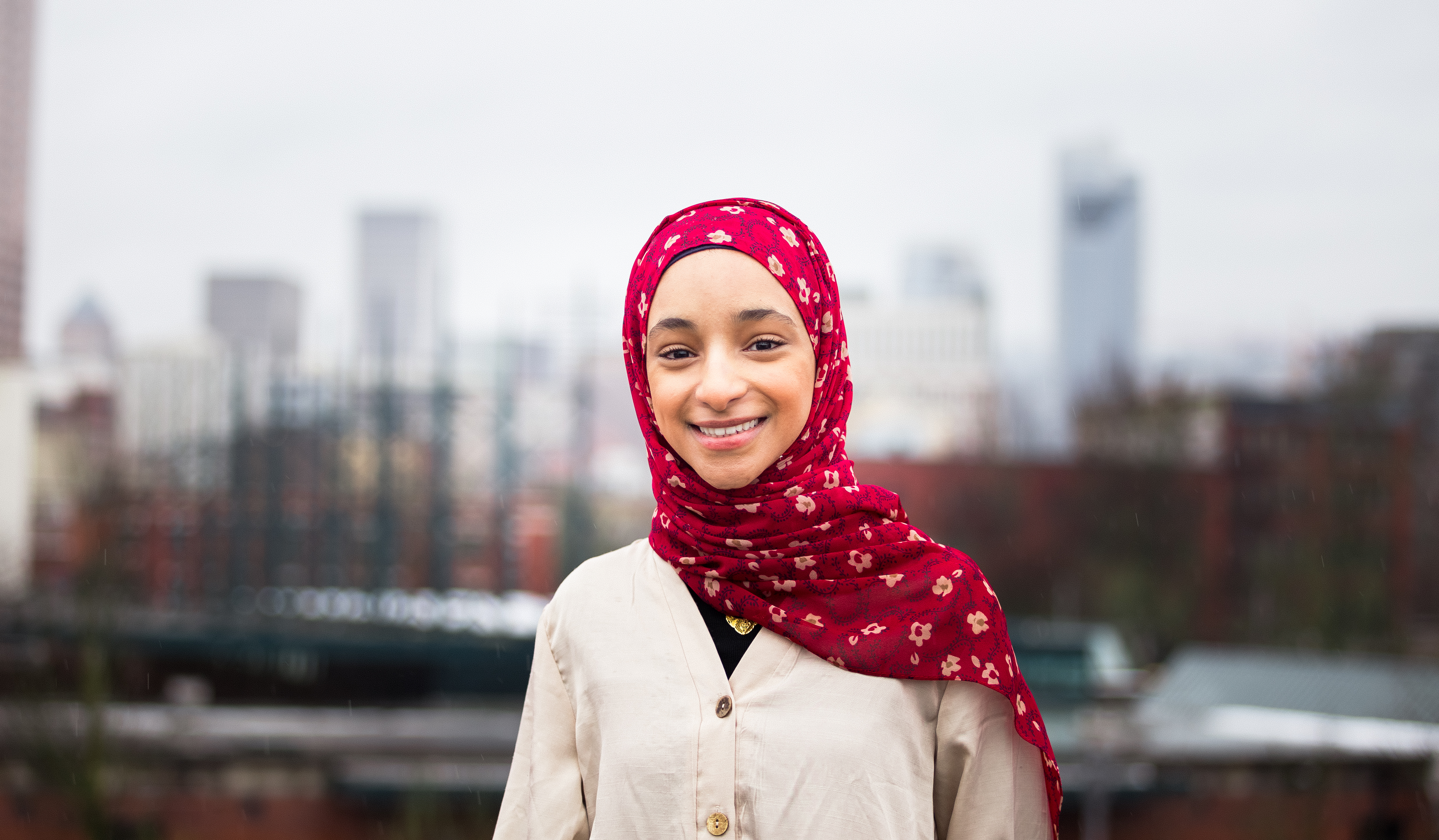Hijab is commonly referred to as a scarf, cloth or head covering worn by Muslim women to remain modest within society, but for most, the garment holds a much deeper meaning. World Hijab Day is celebrated on Feb. 1, and was founded in 2013 by Nazma Khan, a New York resident and social activist. As an annual event, World Hijab Day celebrates all Muslim women who choose to wear hijabs, and encourages everyone to bring awareness to this traditional religious custom.

(David Priymak / The VanCougar)
Ban Alamin is the president of WSU Vancouver’s Muslim Student’s Association, and a senior majoring in neuroscience. Alamin says the main reason she wears a hijab comes from a place of not only modesty, but representing pride for her religion. She defines the hijab as more of a concept, rather than just a piece of cloth.
“Basically, hijab, the word itself in Arabic, means a barrier or to cover something. A lot of times people think the hijab just means the scarf that Muslim girls wear. However, it’s actually a whole concept. … It applies to Muslim women and men. The hijab is a concept that is an overlying regulation of modesty and morality that Muslim women and men follow to uphold their values,” Alamin said. “It’s also a big identifier for me. A big part of being Muslim for me is that I’m proud to be Muslim.”
Although the hijab has been around for centuries, many Muslim women still experience discrimination or microaggressions within their everyday lives. While Alamin says she has never personally experienced Islamophobia, she highlights one particular experience that occurred during her time spent in high school.
“Growing up, I think the biggest situation for me was when I did cross country and track, and I think people were just baffled by the fact that I would still cover myself when doing athletic activities in like 100-degree weather. … When I had to compete at state for some of my races, [coaches] would make a big deal out of the uniform and say I have to look exactly like my other team members,” Alamin explained. “They allowed me to wear [the hijab], but the fact that they made a big deal out of it was a little shocking. If I choose to wear long sleeves under this it doesn’t really affect anybody else.”
Alamin says there are often misconceptions attached to the hijab concept which motivated her to partner with WSU Vancouver’s Center for Intercultural Learning and Affirmation to host her own celebration of World Hijab Day on Feb. 5 over Zoom. For the event, Alamin reached out to several women across the country and asked them to answer questions, address controversies and provide more information about the hijab. Additionally, Alamin explains while at the event, participants received a guided tutorial on how to wear a hijab to better understand the religious custom for themselves.
“[World Hijab Day] is really important to me because, as a Muslim growing up in Western society, Muslims are minorities here. There’s a lot of misconceptions about Muslims, and a lot of negative views about the hijab and women who choose to cover themselves. So, I think this day is so important to educate and show people ‘Hey, there’s people here in America, who grew up and immigrated here who observe the hijab out of their own personal choice.’ No one’s forcing them to wear it and this is their story,” Alamin said.
During the online event, Alamin’s goal was to give students a valuable opportunity that allowed them to recognize appreciation for the hijab. After having organized an open conversation, she hopes others gather a better understanding of Muslim traditions.
“I really wanted to show people that the hijab isn’t a foreign thing. It’s not something that people only wear overseas or because they’re forced to. It’s something that normal Americans and normal Muslims wear. For them, it’s a really sacred thing that they do. It’s like a reminder for us, when we go out, about our relationship with God,” Alamin said. “You know how people wear a tattoo or a wedding ring to remind them of something? We wear this when we go out to remind ourselves of our purpose in life and why we are in this world in the first place. I wanted to share that with people because the hijab is not just a piece of cloth. It means so much more to women, and for others to get a piece of what it means to women, is so valuable.”
While Muslim women are represented as a minority in the United States, there are even fewer represented in the WSU Vancouver community. Having the experience of wearing a hijab her whole life, Alamin states the hijab gives her a sense of purpose, to be the individual who represents the pride and culture that comes with being a Muslim woman.
“I think for me, it’s different from how it affects people who wear the hijab in a place where it’s normalized. When I wear a hijab, I’m like a walking representation of Islam. When a lot of people meet me, I’m the first Muslim they’ve ever met. So, I guess I feel this responsibility to present myself and do good and interact with people in a good way. … Just be the best version of myself so that people don’t have negative views about Muslims,” Alamin said.
Even after conducting the celebration for World Hijab Day, Alamin hopes to continue to inspire students, and urges them to not steer from vital conversations about cultural identity. Instead, Alamin suggests everyone should be curious, and listen closely to other people’s stories about their background and life experiences.
“On a deeper level, wearing a hijab constantly reminds me of my religion, God and my purpose,” Alamin said. “When I wear it, I just feel closer to God and I feel like I’m just more likely to do good in the world and put good out into the world.”

Emily is a senior studying integrated strategic communication at WSU Vancouver.
